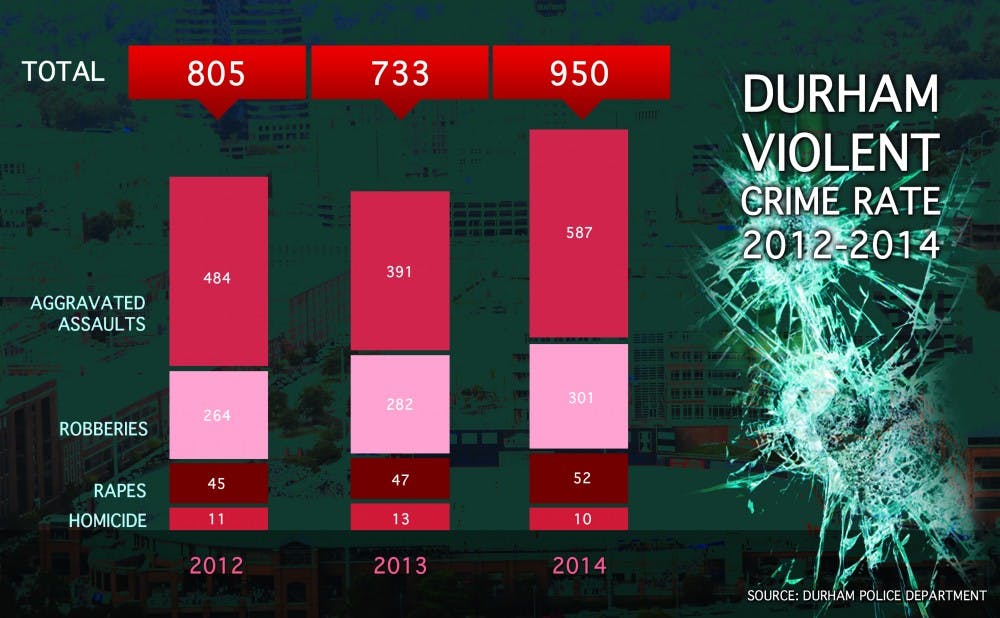After violent crime in Durham saw a 30 percent increase in the first half of 2014, local activists are targeting change among the city's youth.
The first Walk for Life Foundation march took place Aug. 30, and the demonstrations have continued each Saturday since—expanding from its local beginnings in Durham to neighboring cities who are also fighting the impact of crime on their youth. At the helm of the movement is Durham native Rodney Williams.
Inspired by the remarkably high crime statistics of the first six months of 2014—which include 587 aggravated assaults compared to 391 in the same period of 2013—Williams launched the foundation to “save the youth,” he said.
“Whether black or white, rich or poor, we have an obligation to show these kids we love them and to show them they are not alone,” he said.
In addition to the 50 percent increase in reported aggravated assaults, 2014 has seen 11 percent more rape cases and 7 percent more robberies. All totals are calculated by number of reported potential victims, though not all of these incidents will result in a conviction.
Although this increase may seem alarming, the violent crime statistics may not be looking at the entirety of the crime situation currently in Durham, said City Council member Steve Schewel, a visiting assistant professor of public policy. He noted that the 2013 crime rates in Durham were at a 14-year low.
Of the 587 aggravated assault instances in 2014, 22 resulted in an arrested suspect under the age of 18.
Williams hopes that the foundation will bring awareness to some of the Durham neighborhoods that he feels are most negatively impacted by crime rates. Aiming to stop the violence that children are exposed to and unify the communities, he said his movement has been "inspired by the Lord."
The Saturday walks have steadily increased in participation and dedication each week—with approximately 80 young marchers at the latest demonstration, noted Kitora Mason, organizer of the foundation.
Mason said she and Williams are proudly “married” to the cause of helping adolescents in Durham. Ultimately, she said, no political or social pressure can detract her from keeping these weekly marches focused on the children, despite their rapidly growing size.
Neighborhoods in Raleigh and Winston-Salem have reached out to Mason, requesting that the Walk for Life Foundation host marches in their area. The impact of the walks can be "endless," she said.
Walk for Life has already demonstrated a “positive outcome” throughout the communities it has been involved in, Schewel said. He added, however, that there is still much that needs to be done.
Future goals for the foundation include introducing toy and food drives in conjunction with the Durham Police Department to help provide for lower income children in the areas with the highest reported crime rates.
Williams added that another possibility is a fund to create programs designed to provide children with outlets that will deter them from falling into the criminal justice system. He hopes to strengthen the foundation's partnerships with DPD, Mayor Bill Bell and other Durham leaders.
The foundation's next march will take place Oct. 11 at the public housing at Cornwallis Road.
Get The Chronicle straight to your inbox
Signup for our weekly newsletter. Cancel at any time.

